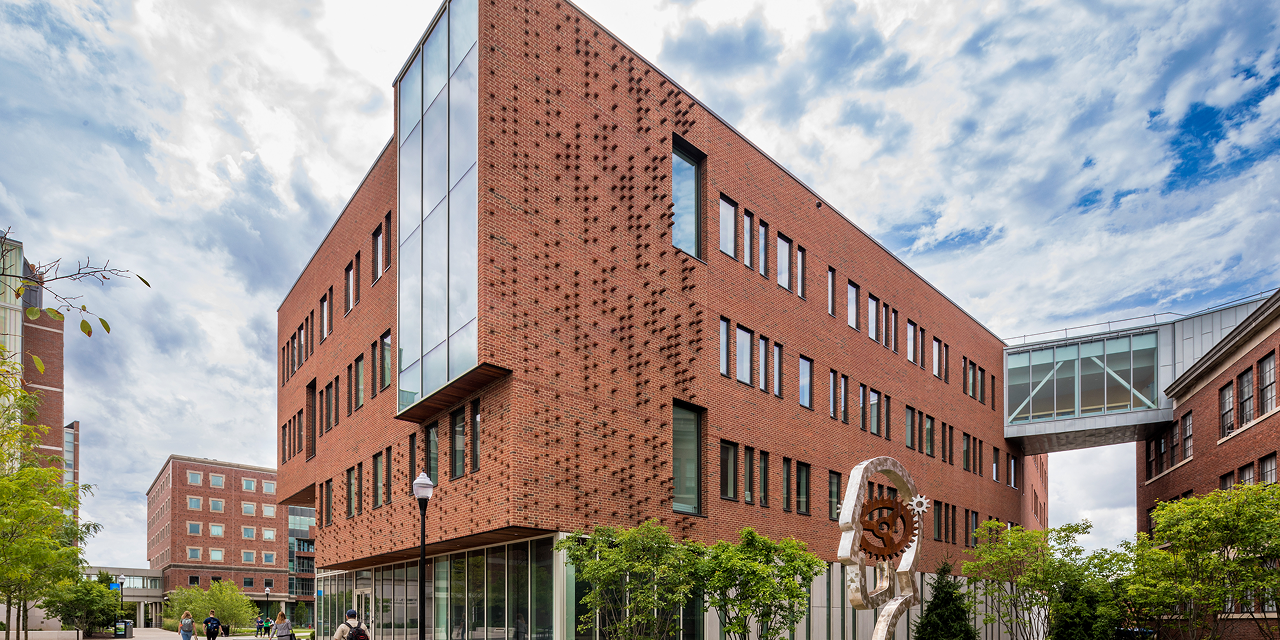Homepage
Undergraduate Studies
We offer several programs of study that provide both a solid foundation in the discipline of linguistic analysis as well as the opportunity to pursue independent research. Undergraduates may pursue a Bachelor of Arts or minor in Linguistics.
Graduate Studies
Learn about our cross-disciplinary PhD program in Linguistics and our three Master's programs: Master of Arts in Linguistics, Master of Arts in Language Documentation and Description, and Master of Science in Computational Linguistics.
Our Research
Linguistics research at Rochester is dynamic, diverse, and deeply interdisciplinary. With active research labs and wide-ranging collaborations, we're pushing boundaries and asking big questions about how language works and why it matters.

Feature Story
Scott Grimm describes how language science helped the Supreme Court decide gun kits should be treated like firearms.
Sales of gun kits, also referred to as “ghost guns,” have surged in recent years—rising from 1,600 in 2017 to more than 19,000 in 2021—a nearly twelvefold increase, according to data cited by the Supreme Court of the United States. Because these kits were hard to trace, they made it possible for convicted felons, minors, and those with restraining orders—all of whom are prohibited from purchasing guns—to get their hands on working firearms.
Continue ReadingUpcoming Events
- Language Science Lecture Series: Ryan Hubbard
Ryan Hubbard, University of Albany
March 17 - Colloquium Title TBA
Jennifer Kuo, Cornell University
March 20 - Aspectual Coercion of Spanish Progressive Statives (Omnibus Lab Meeting)
Daniel Chaves
March 27
What's Linguistics?
The field of linguistics explores the nature of languages, seeking to describe what human languages are like, how languages develop and change, and how people learn and use language. Unlike courses in a language, where the point is to gain an automatic, unconscious ability to use the language, courses in linguistics attempt to develop a fully explicit, scientific theory of how language works. Linguistics thus offers a unique combination of humanistic and scientific concerns.
Recent News
Featured Courses - Spring 2026
Check out some of our featured courses for the upcoming Spring 2026 semester. For a full and updated list of Linguistics courses, explore our course catalog.

LING 102 Language and Social Identity
This course introduces how language is used and perceived to mark social characteristics of an individual or group of individuals. We will examine how social identity is constructed linguistically, which linguistic cues are used consciously to denote different social identities, and how...
Explore Linguistics Courses
LING 228/428 Lexical Semantics
In this course we investigate the study of word-meaning in current linguistics and cognitive science. We examine the meanings of lexical items such as verbs, nouns, adjectives, and prepositions, and also other categories of words, including various function words and discourse particles. We examine...
Explore Linguistics Courses
LING 251/451 Machine Learning with Limited Data
Many Machine Learning courses assume you have access to large, labeled datasets. But what happens when you don't? Real-world applications routinely face severe data constraints: rare diseases have few documented cases, new products lack historical data, endangered species have limited...
Explore Linguistics Courses
Center for Language Sciences
The Center for Language Sciences (CLS) is an organization at the University of Rochester that brings together faculty, postdocs, and graduate students who conduct research on any aspect of human language as a vehicle for active interdisciplinary work.
CLS fosters research and activities that reach across a very broad group of disciplines covering a wide research focus and range of interests. It's a continually evolving organization with a history of serving as a platform for training students and postdocs in interdisciplinary research and enhancing collaborations among members.
Read MoreContact Us
Get in Touch
For more information about the Department of Linguistics, our programs, our research, or our courses, send us an email.




